‘It’s time we start thinking about the value in difference’ — Women at McMaster reflect on inclusive leadership
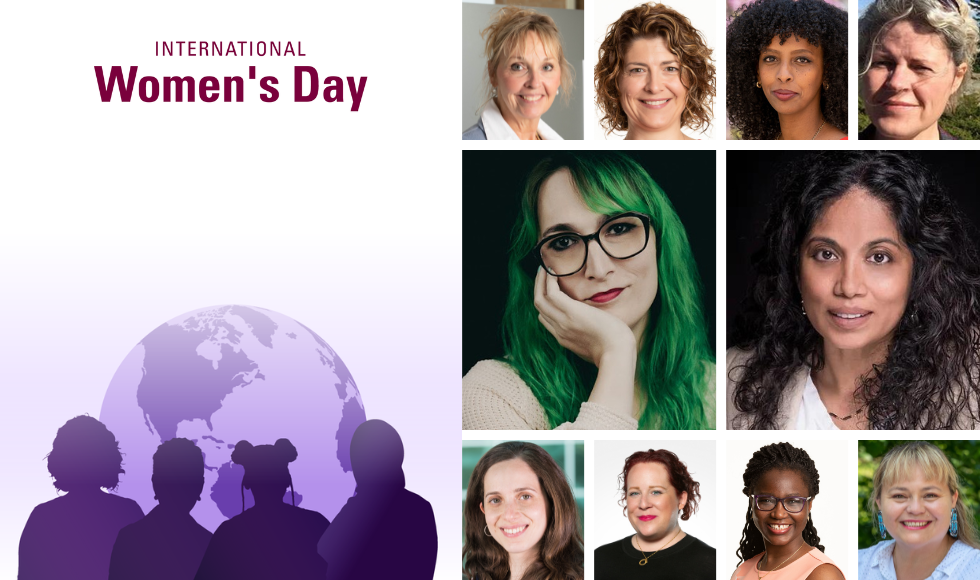
What does inclusive excellence in leadership look like, and how can we move it from concept to reality? Postdoctoral Fellow Sheena Jary shares reflections from women across disciplines on International Women's Day.
Sheena Jary is a postdoctoral fellow who has taught leadership-themed courses across McMaster for three years.

Inclusive leadership isn’t just a best practice; it is a way of being in the world.
Inclusive leadership is something we can all do — and we can practise it every day, at any time and in any context, simply by showing compassion and expressing interest in others — and in the world.
It’s time we start thinking more about the value in difference — and there’s no time like International Women’s Day to begin.
We asked women across campus to reflect on leadership and inclusive excellence.
Adrianne Xavier writes caring for the people and spaces around us, and giving ourselves the grace to do the same.
Paige Maylott shares her experience coming out as trans — and her story uncovers a key aspect of everyday leadership: Celebrating diversity. Leaders see diversity as an invaluable quality of a team.
International Women’s Day at McMaster: Click here for more
Leadership begins from a place of self-awareness: Students need a safe space to learn and educators, rightful leaders in themselves, are duty-bound to care for the psychological safety of students. So we return to compassion, a critical ingredient of psychological safety.
It’s important to transcend theory into practice in leadership teaching and learning. We — as a university community — must start actualizing what we have learned about equity, diversity, inclusion, and accessibility, all of which fall under the umbrella of inclusive excellence.
We don’t practise inclusive excellence. Instead, we practise inclusion with the goal of achieving excellence. Whether excellence is in fact achieved is decided by the diverse voices of the university community–especially students.
If you’re looking for an opportunity to lead, consider this: treat others with compassion and dignity. Include them. See and hear them. The more people who practice these daily, the more notable change will become. Compassion begets compassion.
Here is what my colleagues across campus had to say
Adrianne Xavier | Assistant Professor, Indigenous Studies
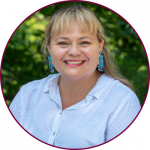 We are teaching the newest generation of students to be open minded, compassionate, aware of the world, critical thinkers who care about the world, environment and people around them. We need to give ourselves the grace to do the same and be the leaders they need.
We are teaching the newest generation of students to be open minded, compassionate, aware of the world, critical thinkers who care about the world, environment and people around them. We need to give ourselves the grace to do the same and be the leaders they need.
Inclusive excellence makes sense if you have been included, or feel like you are. Putting that into practice takes thoughtful care and awareness that we don’t all feel included for so many reasons. That does not mean the contributions are not of a calibre worthy of being labelled excellence. It means we need to recognize that actions speak louder than words. What actions are being taken today for us to make sure that people are seen and heard and recognized.
One of the things I appreciate is the number of Indigenous women who are at McMaster; we need to be seen and see ourselves as leaders to set the example for the world around us.
Inclusive excellence in leadership looks like every Indigenous person who works at McMaster University. We are taught that we are supposed to learn from the generations before us so that the generations to come after us can have the lives we dream of for them. At McMaster, that means we have to have Indigenous people at every level and place in the university.
We also need to recognize the real and valuable ways of knowing and being, and teaching in this institution; from all people and nations.
Leadership can look like walking across campus, it can look like being present for your students, it can look like asking for help.
Inclusive excellence means recognizing the labour that it takes to be there for ourselves first, our family, our work, our lives.
Paige Maylott | Accessibility projects support coordinator, Office of the Vice-Provost for Teaching and Learning
 When I enrolled at McMaster back in 2013, I was simultaneously negotiating a challenging divorce and threatened by the inevitability of homelessness. For those coming out as trans, this journey is sadly not unique — and I believe underscores the necessity for spaces where gender-diverse identities are not just recognized, but celebrated. These experiences are also why trans and gender-diverse prospects seek me out, inquiring what matriculation or employment looks like at McMaster.
When I enrolled at McMaster back in 2013, I was simultaneously negotiating a challenging divorce and threatened by the inevitability of homelessness. For those coming out as trans, this journey is sadly not unique — and I believe underscores the necessity for spaces where gender-diverse identities are not just recognized, but celebrated. These experiences are also why trans and gender-diverse prospects seek me out, inquiring what matriculation or employment looks like at McMaster.
To me, inclusive excellence is a commitment to integrating diversity in every aspect of campus life and academia. A diversity that ensures that every member of our community is given the opportunity to succeed in their studies, and in their professional growth.
What I first tell these prospects is that McMaster is one of the safest, most affirming places to learn and work I have ever experienced. I attribute much of this positive atmosphere to the relentless efforts of Mac’s leadership, and the committees who guide them. However, after I share these affirmations, I am compelled to add an inevitable, “but,” because we can — and I believe want to — do better.
Our leadership at McMaster understands that excellence means creating inclusive environments where diverse perspectives are not only welcomed, but integral to our academic fabric — and that these elements enrich our research and learning outcomes. But, I also believe true leadership means not waiting to follow the example of others. Embodied leadership is displayed by courageously being the first to step forward, pioneering practices and policies that both affirm and support the diversity we seek to attract.
As leaders, we each have a responsibility to set that example. It is my dream that McMaster will be a yardstick that other institutions measure themselves against. By leading with courage and innovation, we can not only inspire other institutions, but shape a more inclusive future for our entire McMaster community.
Ayo Osinowo | Employment Equity Consultant, Talent, Equity and Development, Human Resources Services
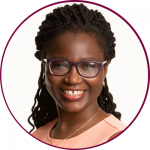
An inclusive leader makes space for all individuals to share their perspectives, recognizing that we all have diverse ways of participating in different activities. In practical terms, this could look like facilitating discussions in a manner that gives everyone a chance to speak during team meetings and inviting perspectives to be shared afterwards, thereby making space for those who may not have had the opportunity earlier. It’s about giving diverse identities a platform to share their unique experiences and perspectives – most recently evidenced in the McMaster Diversity Counts video series.
Inclusive excellence in leadership also requires you to be self-aware of your strengths and weaknesses, be conscious of how these may influence your actions and have a continuous growth mindset, because this has a direct impact on how you show up for your team. You should always be willing to learn, unlearn and relearn.
Perhaps most importantly, inclusive excellence in leadership is about fostering a psychologically safe environment that allows individuals to be their authentic selves and realize their full potential.
And this is an ongoing journey of intentional relationship building that requires transparency, authenticity, and vulnerability.
In the words of Maya Angelou, “…people will never forget how you made them feel.” This is something to keep top of mind, especially as we all navigate an increasingly diverse world.
Although inclusive excellence in leadership may be a significant responsibility that requires ongoing learning and development, it is also a very rewarding experience with lasting benefits.
Alpha Abebe | Assistant Professor and African and Black Diaspora Studies Faculty Lead
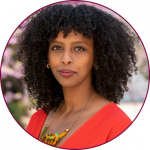 If we are committed to truly moving from theory to practice when it comes to “inclusive excellence,” I believe we need to stop thinking about this work as a technical exercise.
If we are committed to truly moving from theory to practice when it comes to “inclusive excellence,” I believe we need to stop thinking about this work as a technical exercise.
Inclusive excellence should be the outcome of a genuine belief (rather than moral imperative) that including more voices, perspectives, approaches and people actually drives excellence. Inclusivity provides clarity of vision in leadership, it ensures our efforts are aligned with needs and realities on the ground, it drives innovation, and it creates a broader sense of buy-in and accountability.
Leyla Soleymani | Associate Vice-President, Research (Commercialization and Entrepreneurship)
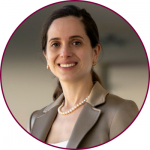
To me, inclusive excellence means that we should consider a wider range of metrics to evaluate the excellence of someone’s work or research. We should move beyond standard metrics such as publications and funds raised, and we should consider people’s roles in community engagement, mentorship, and knowledge translation, together with their lived experiences when appropriate and possible.
I can say with confidence that considering inclusive excellence has allowed us to hire some of our best people that are excelling in all metrics including traditional ones, but if we had not considered inclusive excellence, they might not have gotten the opportunity to excel.
Catherine Frost | Professor, Political Science
and Violetta Igneski | Professor, Philosophy
Co-leads, Wilson College Seminar on Leadership and Civic Engagement
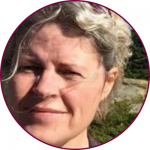
At its heart, inclusion means listening to all voices, and that in turn requires changing our everyday practices so that those with unheeded or marginalized voices can see it’s worthwhile sharing their insights.
A key technique for hearing better is simply to slow down, as rushing tends to replicate the old system at speed, whereas a new pace creates opportunities for reflection and change.

For many people, leadership is about being flashy and powerful, as if someone can sweep in with a genius solution that makes deeply rooted problems vanish. That’s an illusion. Because it rests on trust and collaboration, leadership takes time.
An easy step everyone can take today, therefore, is make a few more minutes for listening with an open mind and an open heart. That way you’re not only demonstrating inclusive leadership in your own actions, you’re helping build the overall capacity for leadership within your community.
Kalaichelvi Saravanamuttu | Professor and Associate Dean of Equity, Diversity, Inclusion and Indigeneity, Faculty of Science
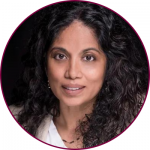
The term “inclusive excellence” reminds me that without inclusion there is no excellence.
Inclusion means that every member of our university community believes that they are a participant, and not a spectator of our collective vision of bright excellence.
At a structural level, inclusion can begin with curricular content, which would allow our students to critically engage with the constructs and scholarship of equity diversity and inclusion, and signal their relevance to the modern degree.
Inclusion means looking to our Indigenous colleagues, students and community members, accepting responsibility, and working to create trust with respect and reciprocity. Inclusion is understanding the stark statistics highlighting inequities in access to post-secondary education, outreaching into the future to our schoolchildren, and affirming in intentional ways, their identity and its extraordinary significance on campus.
Inclusion is accessibility in all spaces, and removing visible and invisible barriers before they are noticed. Inclusion is ensuring that equity is interwoven with our employment practice, and that we prevent the propagation of bias through generations.
Inclusion means that we are profoundly aware of the sometimes devastating impact of global and local changes on our community members.
“Inclusive leadership” then is enabling, facilitating and advocating for the above. Inclusive leadership is advocating for policy reform, but also understanding how policy connects to the individual human.
Inclusive leadership confirms what I was taught as a child and try so hard to always remember — that leadership is service, and service, leadership. Leadership is rooted in humility. It seeks and gives voice to those who work in quiet excellence.
Most importantly to me, leadership means working in community but accepting personal accountability.
Teal McAteer | Leadership instructor and Associate Professor of Human Resources and Management, DeGroote School of Business
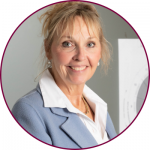
Teaching leadership development at the undergraduate and graduate levels must provide a learning journey that allows participants to assess and adjust how they wish to lead their lives in both their personal and professional worlds.
My leadership development courses, coaching and research all include a transformative learning experience (TLE). Such an experience provides participants with a safe space to commit to the process of self-actualization; to increase personal awareness of their own worldview; and to critically examine their own ideas, assumptions, values, and how those beliefs impact their actions.
This type of learning requires taking risks and a willingness to be vulnerable and have one’s attitudes and assumptions challenged.
Transformative learning in leadership development at all ages and levels encourages individuals to be aware of their own biases and to actively seek out and consider different perspectives to inform their decision-making and collaborate more effectively with others. Only then will we be able to generate inclusive leaders who are genuinely curious about other ways of thinking and being, thus allowing those variations to exist and thrive in the same place.
Only then will leaders be able to authentically embrace diversity and promote inclusivity, thus unlocking the potential of others and creating a more collaborative and productive workforce.

